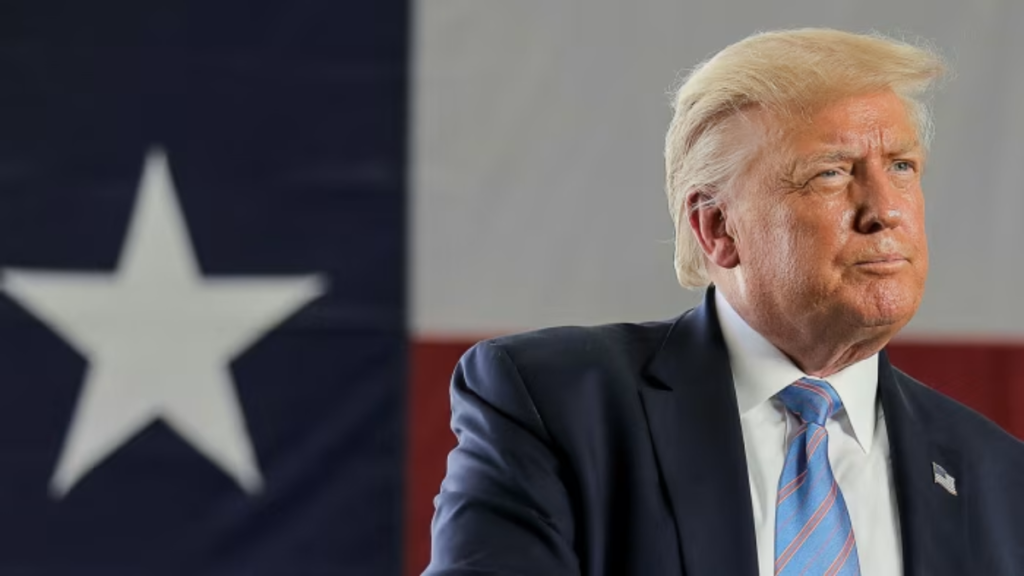As the 2024 election fades into history and the political battles of 2025 heat up, a noticeable shift is taking place among a segment of the American electorate.
Voters who once ardently supported Donald Trump—through rallies, yard signs, and social media posts—are now voicing regret, disillusionment, and outright rejection. A common refrain has emerged: “I believed what Trump said — but not anymore.”
For these former supporters, the change in attitude hasn’t come from a single incident but from a pattern of promises unmet, rhetoric that no longer resonates, and growing concerns over leadership style and effectiveness.
Once swept up by Trump’s anti-establishment messaging and economic vision, many now feel left behind in a political movement they no longer recognize.
Key Reasons Driving Voter Disillusionment with Trump
1. Economic Promises vs. Economic Reality
Many working- and middle-class voters backed Trump believing he would restore manufacturing jobs, lower taxes across the board, and bring long-term economic relief. While Trump’s tax policies initially pleased some, critics point out that the benefits skewed heavily toward corporations and wealthier Americans. Meanwhile, inflation, wage stagnation, and high housing costs continue to bite—issues that Trump’s current campaign offers few fresh solutions for.
2. Ongoing Controversies and Legal Woes
Even among loyal Republicans, Trump’s ongoing legal battles and post-presidential controversies have taken a toll. From multiple indictments to civil court losses and ongoing investigations, some former supporters say they are simply exhausted by the drama. “I voted for a businessman, not a courtroom regular,” said Michael, a former Trump voter from Pennsylvania.
3. Concerns Over Authoritarian Rhetoric
Trump’s increasingly hardline rhetoric—especially regarding his 2024 defeat and suggestions of “retribution” against political enemies—has unnerved a growing number of moderate conservatives and independents. Comparisons to authoritarian leaders, and vows to overhaul the “deep state,” have left some feeling the movement has strayed too far from democratic values.
4. Alternative Conservative Voices Are Gaining Ground
Figures like Nikki Haley, Ron DeSantis, and even outsider entrepreneurs such as Vivek Ramaswamy have appealed to conservative voters who want a more disciplined and policy-focused Republican Party. These alternatives, while still ideologically conservative, promise less chaos and more consistent messaging.

Personal Stories Reflecting a Broader Trend
Interviews with voters from across the country suggest this shift is not just a media narrative—it’s a real-time change happening in rural counties, suburbs, and battleground states alike.
- Sara from Wisconsin voted for Trump in both 2016 and 2020. “He talked like a regular person,” she says, “but after four years, I didn’t see my life improve.” Now, she’s considering sitting out the 2028 primary altogether.
- Jorge from Arizona, a retired veteran, supported Trump over border security. “I wanted solutions, but I got slogans,” he says. “Now I want someone who can govern, not just grandstand.”
- Linda from Georgia once hosted Trump watch parties. “I defended him on everything,” she admits. “But when the Capitol was attacked and he didn’t act fast, that was the last straw.”
These stories mirror polling data showing a gradual erosion of Trump’s base. According to a recent Pew Research survey, about 22% of voters who backed Trump in 2020 now say they are open to supporting another Republican—or are undecided.
What This Means for the GOP and 2028 Elections
The Republican Party now finds itself at a critical crossroads. Trump remains a dominant figure, with a loyal base that still wields immense influence. However, the growing chorus of defectors raises questions about long-term electability—particularly among independents and suburban voters who are crucial in swing states.
If the GOP continues to be seen as Trump-centric, it risks alienating the very coalition it needs to win future national elections. Conversely, a post-Trump era—led by fresh voices—could realign the party around traditional conservative principles with broader appeal.
The Biden administration’s handling of the economy, global conflicts, and domestic issues will also shape how many disillusioned Trump voters shift their allegiance—if at all. But one thing is clear: for an increasing number of Americans, the Trump era no longer holds the promise it once did.
Conclusion
The sentiment “I believed what Trump said — but not anymore” captures a turning point for many Americans. These voters once embraced Trump’s message of disruption and change, but now they seek stability, results, and leadership rooted in policy, not personal drama.
Whether this shift signals a temporary dip in support or the start of a post-Trump GOP remains to be seen—but its impact on the political landscape in 2025 and beyond is undeniable.
For continuing updates on voter trends and 2028 election coverage, visit RealClearPolitics.
Disclaimer – Our team has carefully fact-checked this article to make sure it’s accurate and free from any misinformation. We’re dedicated to keeping our content honest and reliable for our readers.








